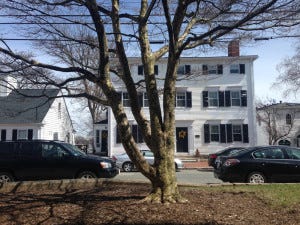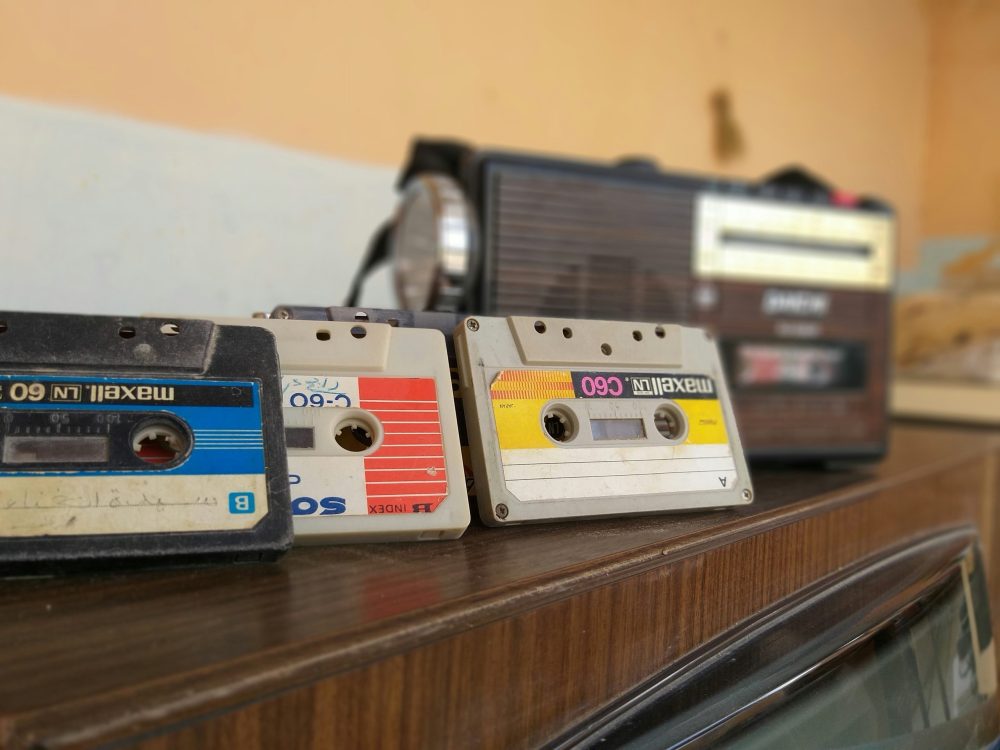news
Jazz, Poems, and Jokes: A Report from the Newburyport Literary Festival

Newburyport is one of the smallest cities in Massachusetts, the original home of the Coast Guard, features a boardwalk and sidewalks I dub “wobbly brickwork Americana,” has plaques commemorating visits from George Washington and Daniel Webster, is very close to where I currently live, and — on April 25th — it played host to the 10th annual Newburyport Literary Festival.
Events at the festival in previous years had seen Robert Pinsky do poetry with a backing jazz band, Andre Dubus III read from the pew of a giant church, and Junot Diaz hold a barnburner of a Q+A after reading off his iPhone where — when asked by an elderly white woman how he felt about being figuratively awarded by this “ruling class culture” — responded by emphasizing the general fluidity of things (that being given this chance didn’t equate into a permanent condition of being), and saying that he wrote for librarians, Dominicans, and lit wonks. Also that even though he’s been put into hyper-circulation, the way in which writers and people of color are given opportunities in this country meant — in his mind — he’d be crazy not to take his moment.

This morning — that is, April 25th, 2015, Year of Our Lord Shatner in Miss Congeniality — I caught Said Sayrafiezadeh at the Greek Church Nicholson Hall, where he read an excerpt from his memoir (When Skateboards Will Be Free) that focused on his reaction as a child to his mother in New York City following Cesar Chavez’s call to boycott lettuce and grapes. He also read an excerpt from his collection of short stories, Brief Encounters With The Enemy, where at one point early on in the story — the entirety of which you can read here — he described the streetlights in the city getting dimmer each day. As an image, it worked where it was in relation to the rest of the paragraph, as if the metropolis was entering a period where it became an old, snow-filled television whose figurative reception more or less benefited from equally figurative slaps upside its figurative head. (I’ve been thinking about Joe Biden recently. Pardon me.) But, during the Q and A, Sayrafiezadeh mentioned that he edited heavily what he read out loud, and — while flipping through the story later — I was struck by the decisions he’d made, the sheer volume of what he’d omitted (whole paragraphs, sometimes pages (for instance, we never met Frankie, nor heard the more explicit bits of the E.T. letter; he had flashed us a text filled with X’d off paragraphs and arrows), and by the fact that he’d actually gone and named a character “Ned Frost.”
Flipping through Kate Bolick’s Spinster (borne of the article “All The Single Ladies”) at the top of the stairs of a bookstore called Jabberwocky, I realized that Bolick was something of a “local,” had grown up in Newburyport, and that she would be reading right across the way at The Newburyport Art Association. Would I ask her about her assessment of how well people were “holding on to that in you which is independent and self-sufficient whether you’re single or couple”? Would I ask her about how she viewed recent trends in data? Edna St. Vincent Millay?
I did not go. I didn’t even attend the reading. After making note of post-it notes left by an author who had done some signings (“To Marissa and John,” read one; another: “FOR THE CAPTAIN”), I went for a walk. Placards stood outside various event venues. Outside of Central Congregational Church Social Hall, I noticed that Erica Funkhouser, Robert W. Crawford, Robert Cording, Paul Mariani, Michael Casey, and Hugh Martin would be giving readings throughout the day. Funkhouser is capable of throwing out great lines like –
Today no nomenclature
ruptures
the composure
of a chalk-blue haze
pausing, even dawdling,
now and then trembling
over what I’m going to call
fresh water.
— but it also put me in mind of an event I’d spotted on the schedule the night before, two poets who edit Light, (Kevin Durkin and Melissa Balmain, whose mission is to “restore humor, clarity, and pleasure to the reading of poems,” so I sent them an e-mail asking them what constituted some of the funniest poetry to them today and received this by way of reply:
Water Pressure
By Julie Kane
My neighbor can’t water his lawn when I shower,
And I cannot bathe when he sprays.
When he gets a yen to start soaking his flowers,
My armpits might smell bad for days.
I’ve gone to the Mayor, but this is the South;
The workmen would rather not sweat.
They’re deaf to complaints from a feminine mouth,
And no one’s been bribed for it yet.
One time I was coated in soap like a lamb
In ringlets of wooly white hair
When all of a sudden the water, goddamn,
Cut off with me sudsy and bare.
I threw on a towel, I ran out the door —
Let’s hope that it covered my crotch.
I meant to ask nicely for five minutes more
But set off our Neighborhood Watch.









